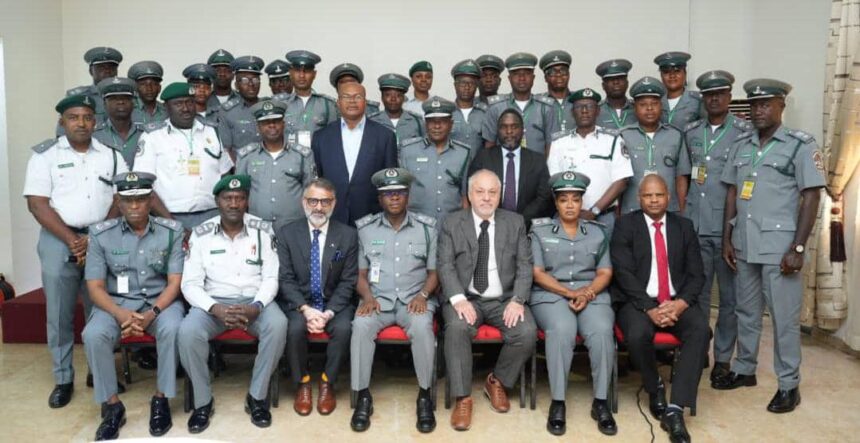The Nigeria Customs Service (NCS), in collaboration with the World Bank Group, the International Monetary Fund (IMF), and the World Customs Organisation (WCO), has flagged off a five-day workshop on Post Clearance Audit (PCA) as part of its capacity building initiatives for its officers and men to enhance trade facilitation in Nigeria.
In his opening remarks at the opening ceremony which kicked off on Monday, the Comptroller-General of Customs (CGC), Adewale Adeniyi, expressed his gratitude to the international partners for their invaluable contributions to the PCA reform efforts.
According to him, the workshop is essential for establishing a robust PCA, which complements the Authorised Economic Operator (AEO) programme.
The Comptroller-General, who was represented by the Assistant Comptroller-General of Customs in charge of Tariff and Trade, Adekunle Oloyode, pointed out that both initiatives were critical to strengthening the compliance framework and advancing the trade facilitation efforts of the Service.
He said: “PCA plays a vital role in ensuring compliance in international trade and safeguarding national revenue long after goods have exited Customs control. PCA serves as a vital tool in balancing trade facilitation with compliance.”
While stressing that the ability to conduct effective post-clearance audits enables the NCS to detect and prevent commercial fraud, recover lost revenue, and enhance trade facilitation, Adeniyi explained that a strong PCA framework had the strength of fostering a secure trading environment, thereby facilitating smoother international trade.
This is even as he spoke on the significance of online virtual sessions, noting that “they provide real-time insights and knowledge sharing, allowing us to address specific challenges and implement the best practices around the globe, helping to innovate NCS PCA processes.”
Elaborating further on the key thrusts of the workshop, the Comptroller-General listed the focus as including risk management, targeting, developing data-driven methodologies to identify high-risk transactions, creating detailed audit plans for efficient execution, capacity building, leveraging international expertise and technology, among others.”
He urged participants to apply what they learned from the training to strengthen the Service’s PCA system and protect national revenue.
In his remarks, Assistant Comptroller-General of Customs of the Strategic Research and Policy Department of NCS, Suleiman Chiroma, described the PCA as a tool that ensures the smooth running of Customs’ processes by introducing measures, methods, and various approaches for seamless transactions.
He said collaboration with these organisations remained key to the survival and success of the NCS.
Similarly, an expert from the WCO, Russell Clark, thanked the other partners for their collaboration and commended the NCS’s dedication to improving its processes in trade facilitation.






